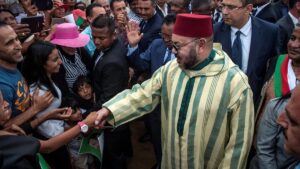Protests in Morocco: Evidence of the vitality of society and the system!!
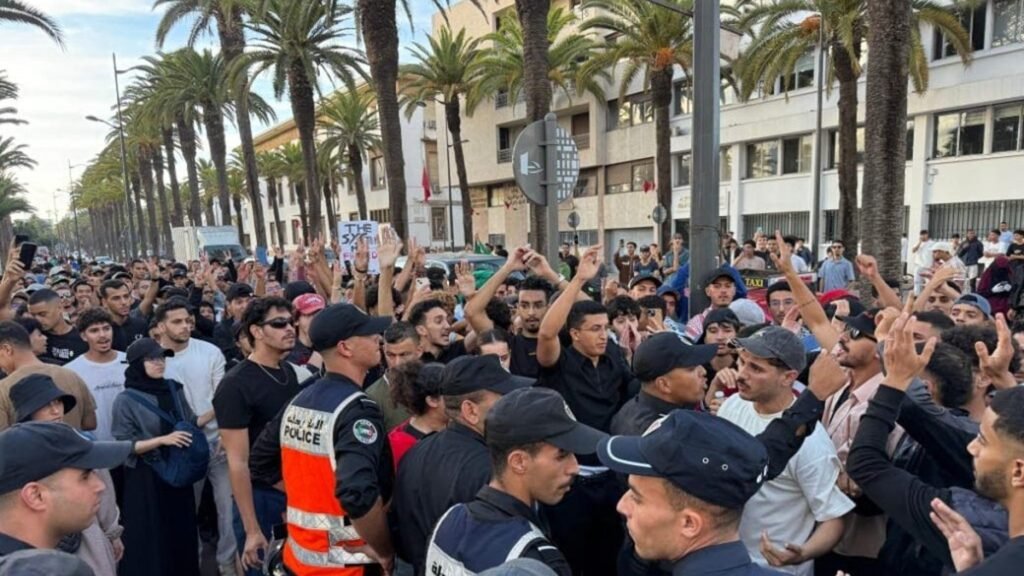
Morocco is currently witnessing popular demonstrations and protests, primarily led by dozens of what is commonly called "Generation Z," in reference to what has happened and is happening in South Asian countries, starting with Sri Lanka, then Bangladesh, and finally Nepal. Despite the huge difference between the Moroccan situation and the protests taking place in these Asian countries, both the media, both via social media and traditional foreign media, have suddenly become interested in what is happening in Morocco, without being known to be particularly interested in protests with a social background!
Despite the difficulty of delving into trying to understand Morocco's protests and determining the dividing line between what is legitimate and positive, and what is "suspicious" and negative, we decided to try, in line with our message that does not hesitate to express its biases and support everything that would improve the standard of living of Moroccans, especially the most needy and vulnerable groups. This bias should not distract us from seeing the risks that could result from these legitimate protests being diverted from their beneficial context, by allowing legitimate popular demands to be exploited for the benefit of groups, both internal and external, who are adept at exploiting these demands like the "Othman Shirt"! Without paying much attention to the outcome of the protesters' demands or the extent to which they have been achieved.
To this end, we find it necessary to alert and remind people of what we consider “basic facts,” which it is important not to allow to be obscured or blurred by the dust of events:
To begin with, these protests, unlike other similar actions in the East and West, are not directed against the monarchy, just as their predecessor on February 20 was not, unlike what happened in all the Arab countries that witnessed popular protests at that time. This fact may seem difficult to understand for those who do not live the Moroccan reality in detail, even those with good intentions, and inconceivable for those who are interested in muddying the waters of these events, making them easy to catch, primarily Morocco's opponents!! Anyone who followed even a part of these protests heard many chanting the Kingdom's immortal slogan: "God, the Nation, the King"; not to mention the failure to chant the famous slogan of the "Arab Spring" wave: "The people want to bring down the regime!" Therefore, we say to those who are trying to fuel this protest wave, hoping it will sow unrest within the ranks of the regime and contribute to its weakening: Your efforts have failed. "Play something else," as our Egyptian brothers say!!
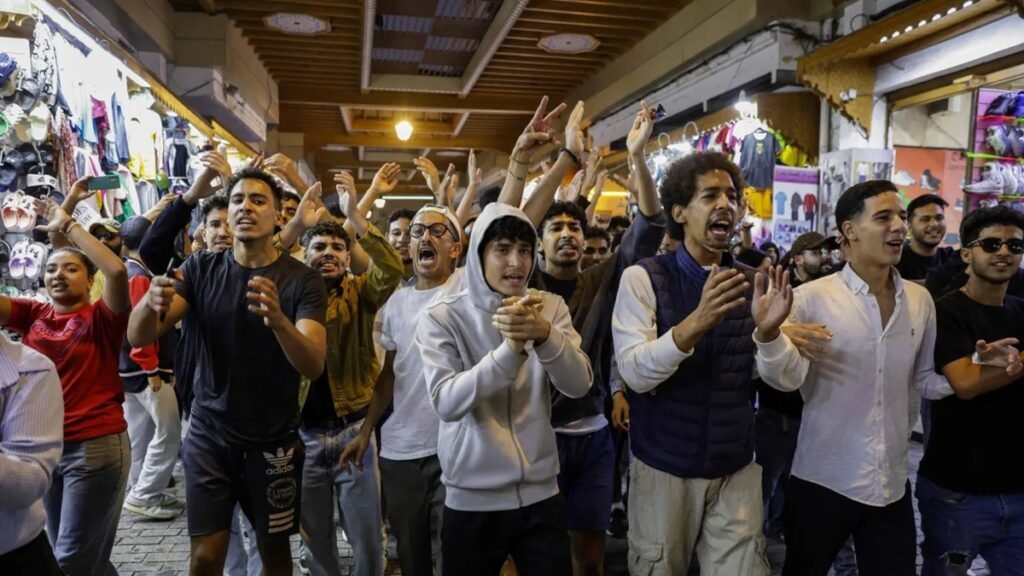
The second of these facts is that the protesters' demands, in general, are legitimate, as not all Moroccans enjoy equal access to education and health services. This was expressed and warned against by the country's king himself, who spoke of Moroccans not benefiting fairly from their country's wealth or the benefits of its development. However, this reality should not obscure the fact that the poverty map is shrinking dramatically and that the middle class continues to expand steadily, a crucial indicator. In other words, these protests should serve as "evidence" of the "greyness" of the social reality—like any social reality anywhere in the world—and as a "denial" of its absolute whiteness or its pitch-blackness.
The third of these facts suggests that the government, and specifically its prime minister, who is the lion's share of these protests, urgently needs to revise its economic policies to prioritize the interests of producers, or the vast majority of citizens, over the interests of those belonging to the prime minister's "tribe" of businessmen. To illustrate this point, we will suffice with providing three clear examples that fueled these protests: In education and health, a system was tailored to favor the private sector, which owns private schools and clinics and imposes whatever fees it pleases on citizens, under the flimsy pretext of "freedom of competition" and respect for the "market economy" environment. This is not to mention the emphasis placed on export sectors, particularly agriculture and fisheries, which Mr. Akhannouch held for nearly ten years before becoming prime minister, without taking into account the impact this would have on citizens' purchasing power. While the focus on attracting hard currency and creating a suitable environment for foreign investors is important, it should not be at the expense of social peace, even if it succeeds in what many citizens see as “buying off” the complicity of the unions and the rest of the government’s social partners. Ultimately, it is no easier for people than to strip the government of its legitimacy from those who have renounced their duties towards it.
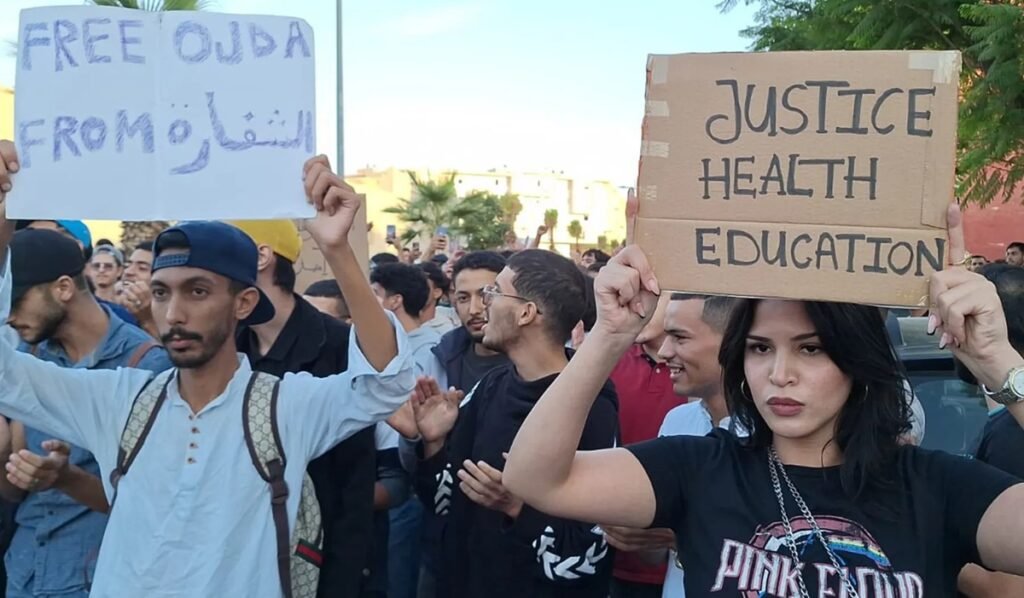
The fourth of these facts is that, like any popular movement anywhere in the world, we find a mixture of conscious and legitimate demands, mixed with a great deal of ambiguity and "populism" represented by demands that either inadvertently leaked out amid everyone's attempt to contribute, or with malicious intent, aiming to divert popular demands from their noble compass, diverting them to a direction that harms the interests of the citizens themselves, before reaching the government and its prime minister. Accordingly, the call to boycott the Mawazine Festival, the Africa Cup of Nations, and other "caricatured" demands will only distract the efforts of the protesters, more than anyone else. The alternative here is for the demands to remain focused on what affects citizens' purchasing power and standard of living.
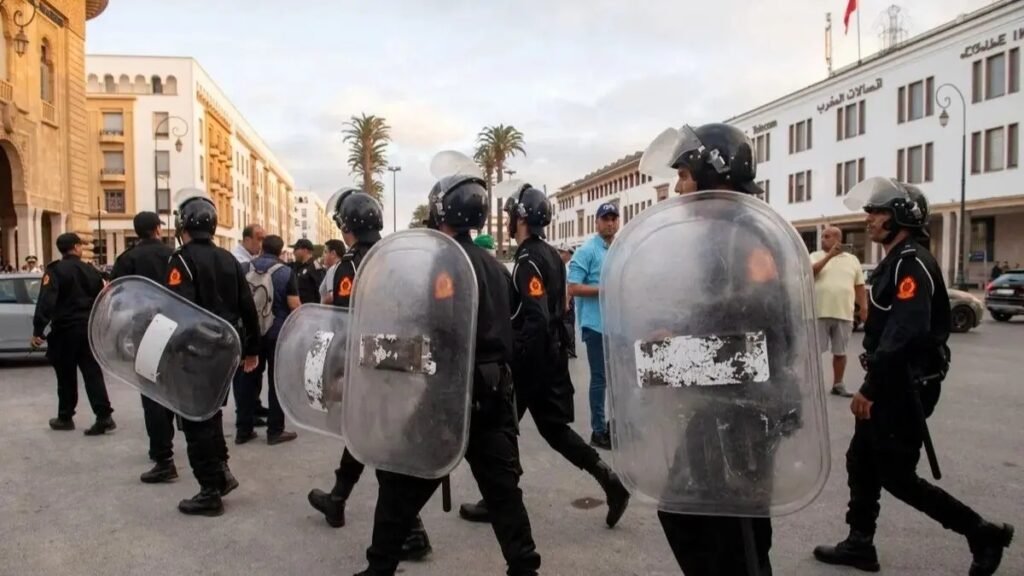
Fifth, it is unfair to single out the Moroccan protest movement as a situation to which no worldly law applies. The same applies to the behavior of security forces toward the protesters. Accordingly, the protests were, for the most part, peaceful and disciplined, with some violence and verbal outbursts from some young protesters expected, which is more than normal. Security forces responded to this situation with calm, focusing on encouraging the youth to stop, by repeatedly repeating the phrase "stay calm," but there were also occasional violent reactions to verbal and behavioral transgressions by some protesters here and there. Thus, to judge these actions by both parties (protesters and security forces), they must be compared to what happened in Morocco in the 1980s and 1990s, as well as in other Arab, Islamic, and Third World countries that experienced similar experiences. Not to mention the experiences of prominent Western countries such as France and the United States, which President Trump has recently gone so far as to confront (the popular protests) by deploying military forces in the streets.
The final of these observations states that the other side of these protests is evidence of the "vitality" of the Moroccan people, in all their diversity, and the depth of their sense of dignity and awareness of their rights, not to mention the awareness demonstrated by their movements. They are also evidence of the professionalism of the security apparatus, which is careful to balance the reactions of its personnel with the actions of the protesting youth. Finally, they are evidence of the strength and vitality of this regime, and its ability to accommodate the legitimate demands of its various social groups, without allowing the sabotage of its efforts, even if their positive results may not be immediately apparent!
In conclusion, for those who do not know Morocco, whether they are its supporters or its opponents, we assure them of a stark truth: No one knows the Moroccan people like the palace; it has been this way throughout its long history; it is still the same today under King Mohammed VI; and it will remain so for decades and centuries to come. This explains why this monarchy, unlike any other in the world, has endured for so long (the longest in the world), despite all the crises and confrontations it has experienced. Therefore, when the appropriate moment arrives, as determined by the country's king, he will address his people, respond to their pleas, pat them on the back, and do what the people are confident in advance is necessary to correct the course of public affairs in Morocco, in a manner commensurate with the magnitude of the imbalances and deviations. Until then, we say to those who have hidden agendas, especially regarding Morocco—its state, people, and institutions—and to those who cannot escape the captivity of an ideology hostile to monarchies, simply because they are monarchies: believe us when we say: "You have no power over Moroccans!"
